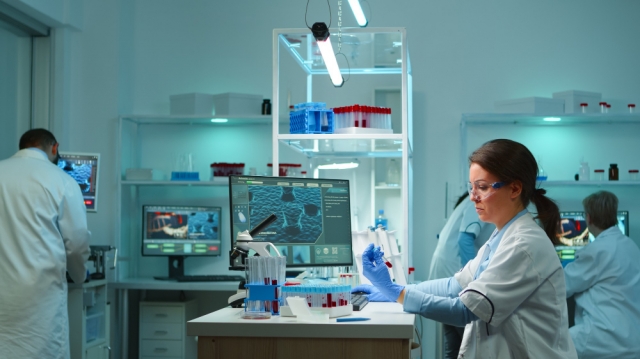Liver disease treatment can be a real challenge, especially when the liver cannot regenerate itself during end-stage liver disease. Thankfully, mesenchymal stem cells (MSCs) are emerging as an effective treatment that is also backed by science.
In this article, we'll explore the science behind MSCs, the benefits of MSC therapy for liver disease, and the process of this emerging treatment.
The Science Behind MSCs
Mesenchymal stem cells are stromal cells with self-renewal and differentiation properties. MSCs can be obtained from a variety of sources, including:
- Bone marrow
- Adipose fat tissue
- Gum tissue
- Placenta
- Umbilical cord
MSCs are used in stem cell therapy because they can differentiate into many different cells, including fat cells, bone cells, nerve cells, liver cells and muscle cells.
MSCs also aid in tissue repair by releasing growth factors and cytokines, which facilitate the creation of new blood cells and bring other cells to the site of tissue damage. MSCs can also reduce inflammation and regulate immune responses.
MSCs in Liver Disease Treatment
Stem cell therapy clinics like Swiss Medica use MSCs in liver stem cell treatment because MSCs can differentiate into hepatocyte cells. Hepatocytes compose up to 70% of the liver, so this ability to differentiate into hepatocytes is crucial.
Research shows that MSCs reduce inflammatory responses in the liver and reduce liver fibrosis while also functioning as antioxidants.
Other reasons MSCs are the preferred stem cell treatment for liver cirrhosis and liver disease are that there are many different sources for MSC isolation and that large-scale production of MSCs is possible.

Benefits of MSC Therapy for Liver Disease
The anti-inflammatory, immunomodulating, anti-fibrotic and paracrine properties of MSCs make them an ideal fit for treating liver disease.
Long-term damage to the liver results in severe scarring that significantly hinders its capacity for regeneration. MSCs travel to the site of tissue damage to restore lost functions and increase the regeneration capacity of the liver.
Stem cell therapy can help reduce symptoms of liver disease, such as:
- Weight loss
- Digestive issues
- Fatigue
- Jaundice
Many people with liver disease who undergo MSC therapy see an increase in energy levels and a general improvement in quality of life. Overall, MSC therapy can improve liver function and reduce fibrosis.
Stem cell therapy is also a non-invasive treatment, unlike liver transplants, and the results of MSC therapy are mild but sustained over time.
The Procedure: From Extraction to Administration
Clinics like Swiss Medica have a detailed patient evaluation process. First, a patient must consult with a doctor to determine an appropriate treatment plan and stem cell source. Stem cells can be obtained from the patient, for example, from their bone marrow, or donor MSCs can be used.
When using the patient's own cells, the MSCs must be sent to a laboratory for three to four weeks before administration. Donor MSCs, however, can be used immediately. Therefore, if treatment is urgent, donor MSCs are a better fit.
After extraction, stem cells are administered to the patient through an injection. There's no pain with this treatment method, besides that of a traditional injection. Usually, there are no side effects, but patients should follow up with their doctor to monitor their treatment.

Challenges and Considerations
According to research, there are no serious side effects associated with MSCs for liver disease. Some patients may get a small fever, but this typically passes on its own.
MSC therapy is beneficial, but it's not a magic cure and it can be difficult for a severely scarred liver to heal. Therefore, MSC therapy should be used in conjunction with other therapeutic approaches and patients should maintain a healthy lifestyle to facilitate healing.
Real-World Impact and Future Outlook
MSC therapy is gaining traction as an effective treatment for liver disease treatment and many clinical trials have proven its effectiveness. MSC therapy has been shown to be a safe, promising treatment for severe liver cirrhosis, liver failure and complications from liver transplants.
While the outlook is positive, more double-blind trials with larger sample sizes are needed to improve the safety and efficacy of the treatment and increase its widespread adoption.
In conclusion
MSC therapy is a safe and effective stem cell treatment for liver cirrhosis and liver failure. MSCs travel to the site of tissue damage to restore lost tissue functions and support the regeneration of hepatocyte cells. The results are mild but sustained, and patients can see an improved quality of life and a reduction of symptoms.
This therapy is suitable for most people, but potential patients must go through an evaluation to identify contraindications and find the appropriate treatment. Scientific research backs the effectiveness of this therapy, but more research can increase safety, efficacy and widespread adoption.






